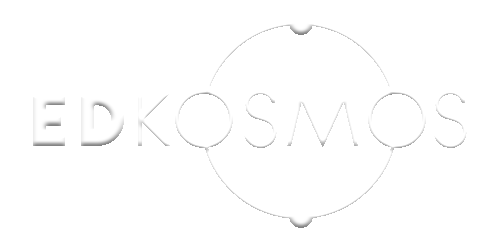Gain requisite counselling skills to help clients engage in self-care and nurture healthy interpersonal relationships The Professional Counsellor Program provides students with the requisite counselling theory and skills required to support clients in addressing and solving real-life problems, coping with life?s crises, addressing inner conflict, developing personal insights, engaging in self-care, and nurturing healthy interpersonal relationships, all in the context of working as part of and within an interdisciplinary healthcare service. Professional counsellors support and help individuals work towards living resourceful, successful, and self-fulfilling lives. Graduates of this program will be qualified to work in Employee & Family Assistance Programs, private practices, health and wellness clinics, educational institutions, treatment centres, government and not-for-profit organizations, and human resource departments. The Canadian Professional Counsellors Association (CPCA) The Canadian Professional Counsellors Association (CPCA) is a nationally recognized, non-profit organization registered in accordance with the National Corporate Registry of Canada. The CPCA is governed by a National Board of Directors which is elected by its members from all regions across Canada. Students of Sprott Shaw?s Professional Counsellor Program are eligible to write the CPCA Qualifying Exam and become a Registered Professional Counsellor. The Association of Cooperative Counselling Therapists of Canada (ACCT) Graduates of the Professional Counsellor Program meet ACCT?s education criteria for membership. ACCT is the first community service cooperative for competency-based counsellors in Canada, and they are incorporated under the Cooperative Association Act of British Columbia. ACCT is home to counsellors nationwide, who demonstrate competency and excellence in the counselling profession. ? Why Take The Professional Counsellor Program At Sprott Shaw? Licensing exam preparation and study guides for the Canadian Professional Counsellor Association (CPCA) Qualifying Exam at no additional chargeLifetime access to dedicated Employment Services Specialists (ESS) who can help you with resume and cover letter writing, interview skills, and the overall job search after graduationLifetime tuition-free access to course refreshers if you ever need to retrain and update your skillsPracticum opportunities with recognized organizations across BCCertificates including Nonviolent Crisis Intervention (NVCI)?Multiple start dates so you can start your education when you want to without the waitCareer and professional development success courses to help create a career development marketing plan, learn the cardinal rules of professionalism, and identify the target markets and employment resources in the counselling fieldPreparation and orientation courses to teach you how to find credible research, write papers, create proper citation formats including APA, and study effectively for examsAll-inclusive program costs where what you see is what you pay. Our costs include registration fees, assessment fees, tuition, textbooks, supplies, course materials, uniforms, certificates, graduation fees, practicum fees, and much more Professional Counsellor Program Learning Objectives Upon successful completion of the professional counsellor program, graduates will be able to: Provide safe, ethical, and sociocultural sensitive care according to the guidelines as set by the Association of Cooperative Counselling Therapists of Canada, Canadian Professional Counsellors Association, and the Federation of Associations for Counselling Therapists of British Columbia.Practice in a reflective, responsible, accountable, and professional manner as required by legislation, defined scope and standards of practice, and the Code of Ethics as described in the Health Professions Act.Demonstrate comprehensive and competent knowledge of counselling theories and practice.Assist and apply in counselling practices that promote the physical, psychological, social, cognitive, and spiritual well being of clients.Work collaboratively as part of a healthcare team to provide quality counselling care for clients.Perform according to the Practice Standards and Code of Ethics for Counsellors of BC.Engage in Evidence-Based Practice.Abide by the ethical principles of the counselling profession and participate in the ethical decision-making process.Comply with the legal requirements of the counselling role.Demonstrate theoretical models to counselling practice that recognizes and respects the uniqueness of each individual client.Recognize the benefits, limitations and contraindications of differing theoretic frameworks.Develop an informed theoretical framework by reflecting on your own worldview and values as you begin to understand the various counselling interventions and processes for facilitating change.Use an approach to provide care that promotes the physical, psychological, social, cognitive and spiritual well being of clients.Demonstrates awareness of the social, political, economic or cultural factors that impact human development and functioning.Demonstrates awareness of culturally appropriate responsibilities as a counsellor and expresses a commitment to understanding clients as complex, multidimensional and cultural beings.Displays knowledge of abnormal psychology and the continuum of normal and abnormal behaviour.Identifies the factors affecting mental health and illness and applies methods for recovery and treatment.Demonstrate effective, caring interpersonal and therapeutic communication techniques with clients, colleagues and others.Interact with other members of the healthcare team in ways that contribute to effective working relationships and the achievement of goals.Collaborate and cooperate with other service providers in the best interest of clients.Accept feedback with grace and appreciation.Model behaviours that promote inclusion.Recognize and respond to own self-assessment, self-development, learning and health enhancement needs.Apply self-reflective and self-appraisal processes in order to increase own effectiveness in practice.Utilize feedback to develop learning goals.Enhance counselling performance through self-evaluation strategies such as videotape analysis, readings and peer feedback.Perform in a reflective, responsible, accountable and professional manner.Prepare and maintain client records and reports accurately.Seek consultation or supervision, and reviews research when unusual, difficult to resolve or complex situations arise.Demonstrate effective strategies and techniques in client orientation, assessment, intervention, evaluation and closure.Become familiar with and utilize various diagnostic and assessment tools as appropriate.Provide care and assistance in ways that maintain safety for self and others in a variety of contexts. Share this program:FacebookTwitterWhatsAppEmailPrint



